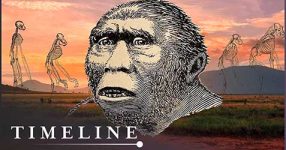“The Dreaming Mind: Waking the Mysteries of Sleep” takes viewers on a journey from Lewis Carroll’s Wonderland to Mary Shelley’s Frankenstein, unraveling the timeless fascination with dreams. From the belief in ancient cultures that dreams were messages from the gods to Freud’s declaration of dreams as the “royal road to the unconscious,” this documentary explores the historical and cultural significance of dreams. The narrative highlights a pivotal moment in the 1950s, with Eugene Aserinsky’s discovery of REM sleep launching the modern era of dream exploration.
As the documentary unfolds, it delves into the multifaceted questions surrounding dreams: Do dreams serve a function? Are they expressions of suppressed wishes, as Freud proposed? The documentary introduces the idea that dreams play a crucial role in memory consolidation, shedding light on the intricate relationship between sleep stages and the brain’s activities during the night.
Dreams and Memory: Unraveling the Science Behind the Nightly Journey
Professor Ken Paller, director of the cognitive Neuroscience program at Northwestern University, takes center stage to discuss groundbreaking research conducted with colleagues worldwide. This research proves that real-time two-way communication with lucid dreamers is possible. The narrative emphasizes the role of dreams in memory consolidation, suggesting that dreams help the brain process information acquired during waking hours. This section offers a glimpse into how the brain works during sleep, dispelling the notion that it remains inactive.
Furthermore, the documentary explores the concept of lucid dreaming, where individuals are aware that they are dreaming within their dreams. Scientific validation of lucid dreaming is discussed, along with the ability to communicate with dreamers in real-time. The research involves instructing lucid dreamers to move their dream eyes, leading to observable eye movements in the physical body, demonstrating a tangible connection between dream experiences and physical responses.
Lucid Dreaming: The Gateway to Conscious Dream Control
“The Dreaming Mind” features insights from individuals who have experienced lucid dreaming. Dreamers share their ability to influence the dream narrative, control nightmares, and even create art within their dreams. The discussion extends to the concept of dissociation within dreams, where dream characters and aspects of the self are explored independently.
Professor Deirdre Barrett’s research on dream incubation is introduced, showcasing how individuals can use self-suggestion to guide their dreams toward specific topics or problem-solving. The documentary presents the potential applications of this, such as using dreams to gain insights into unresolved issues or creative challenges.
Ethical Considerations and the Future of Dream Manipulation
As “The Dreaming Mind” delves into the potential applications of dream manipulation, ethical concerns are raised. The fear of surreptitious influence during sleep, such as advertising or manipulation of thoughts, becomes a focal point. The discussion includes a call for ethical guidelines in dream research to address potential misuse of dream manipulation techniques.
The narrative concludes with a reflection on the future of dream research, emphasizing the need for responsible exploration and ethical considerations. “The Dreaming Mind: Waking the Mysteries of Sleep” serves as a captivating journey through the mysteries of sleep, offering glimpses into the past, present, and potential future of understanding the dreaming mind.












